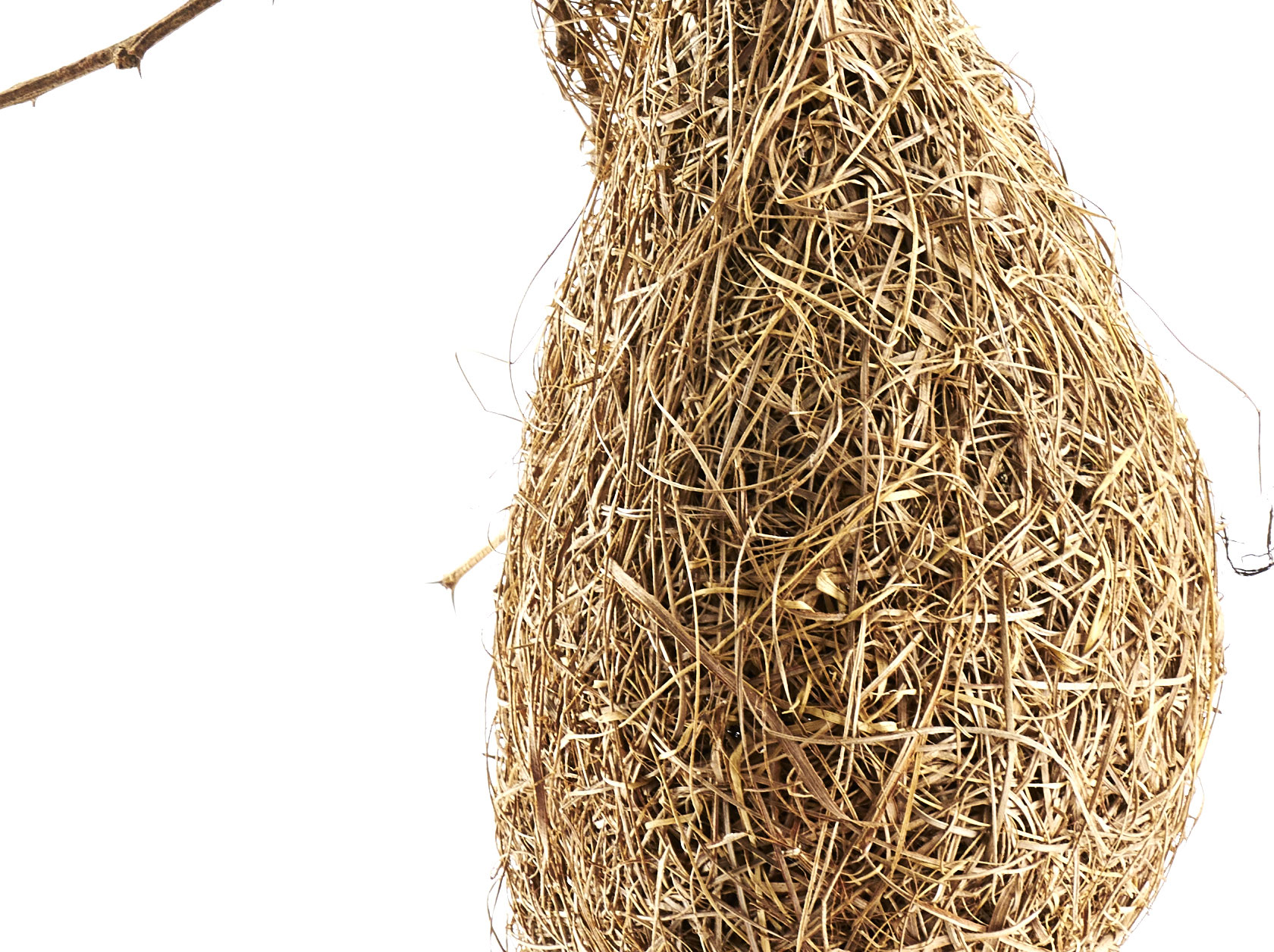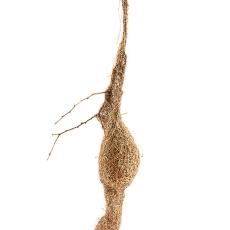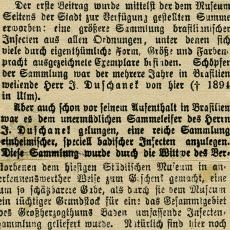Insights into the History of the Collection
Marie Duschanek
22.11.1827 – 7.10.1909
Marie Duschanek's name was added to the roll of honour in 1897. Marie Duschanek is the only woman and the first person who did not belong to the museum's circle of founders named on the benefactors' roll of honour.
A native of Freiburg, she lived for several years with her husband, Joseph Duschanek († 1894), in Brazil. They brought back several ethnographical objects from South America, which she donated or sold to the museum after her husband's death.
Marie Duschanek Donation
The museum received various objects from Marie Duschanek. One of the museum's first acquisitions in 1895 was a collection of insects, for which it paid 300 Marks. It was collected by Joseph Duschanek during his stay in Brazil. A further Duschanek collection of insects, comprising insect fauna from the Baden region, was taken on in the natural history section during the same year. This represents an important basis for the documentation of the insect population in the area of the erstwhile Grand Duchy of Baden. Further donations by Marie Duschanek followed in 1900 and 1907, including a weaverbird nest, a ruff and a grebe.



